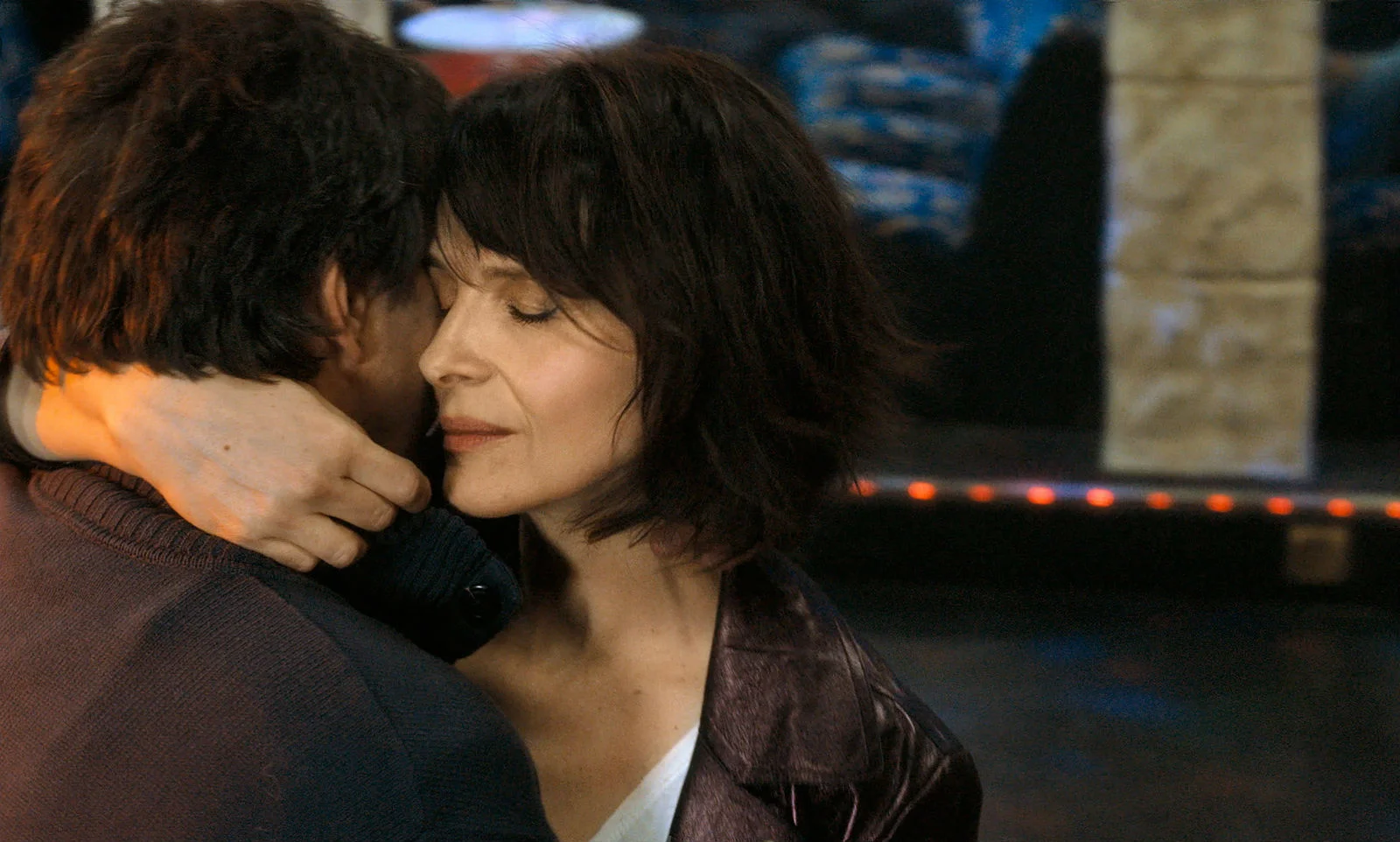Let the Sunshine In: Sober Meditation on Love Lurks Beneath Frothy French Rom-Com
By Liam Lacey
Rating: A
Juliette Binoche plays Isabelle, an exasperating, incurable romantic in Claire Denis’ Let the Sunshine In. A chic, middle-aged single mother of a 10-year-old daughter, she makes a living as a painter, dresses too young for her age, and seeks love through a series of inappropriate men, married or otherwise. In Binoche’s wonderfully open, mercurial performance, Isabelle’s candour and faults are all nakedly on display.
Isabelle is addicted to adulation, above all else. Take that young daughter, for example, who we see once, in a glimpse, in the back of a car when she’s going to her father’s place for the weekend. Mom is definitely all about fulfilling herself.
A scene from Let the Sunshine In.
The men are worse, of course. There’s the smug, entitled married banker Victor (Xavier Beauvois), who turns her on because he disgusts her. He claims to deeply admire her… just not as much as his wife. Then there’s the actor with the drinking problem (Nicolas Duvauchelle), who comes on to her, and then, like a timid boy, frets that things have happened too quickly.
There’s ex-husband Francois (Laurent Grévill), who Isabelle occasionally sleeps with and who pisses her off when he shows off a sexual move in bed which she knows he learned from someone else. Then there’s the working-class guy named Sylvain (Paul Blain) who she meets on a dance floor on a trip to the south and the soundtrack explodes to Etta James singing “At Last.” And then, at last, she reluctantly decides he isn’t really part of her social class.
Hovering around the periphery is a male artist friend Fabrice (Bruno Podalydès) who comforts and advises her while she deftly ignores his come-ons.
Let the Sunshine In seems like a departure for Denis, the director of the colonial epics, Beau Travail and White Material, but it’s also more than the frothy romantic comedy it seems to be. The film has a somewhat complicated provenance.
Denis co-wrote it with novelist Christine Angot, loosely inspired by Roland Barthes’ 1977 short book, Lovers’ Discourse: Fragments, a complex, very French enquiry into the process of falling in love. Here’s a sample: “By a singular logic, the amorous subject perceives the other as a Whole (in the fashion of Paris on an autumn afternoon), and, at the same time, this Whole seems to him to involve a remainder, which he cannot express.”
In that same spirit — and in contrast to the typical romantic comedy — Let the Sunshine In is cerebral, exploratory, and unpredictable. Each romance represents a shift in tone, a new conversation, a new opportunity for wisdom and foolishness.
The last of these encounters, in a long scene that is almost an act in itself, Isabelle seeks romantic advice from a psychic, played by Gérard Depardieu. A gravely serious and pompous fraud, he listens to Isabelle's stories and advises her like a poker coach: Hold out for this one, play that one, this one probably won’t work. At the same time, of course, the adviser appears to have his own designs on her.
Men! Women! Impossible.
Let the Sunshine In. Directed by Claire Denis. Written by Claire Denis and Christine Angot. Starring Juliette Binoche and Gérard Depardieu. Opens June 1 in Vancouver and at Toronto’s TIFF Bell Lightbox; opens June 15 in Montreal, and throughout the spring/summer in other cities.

